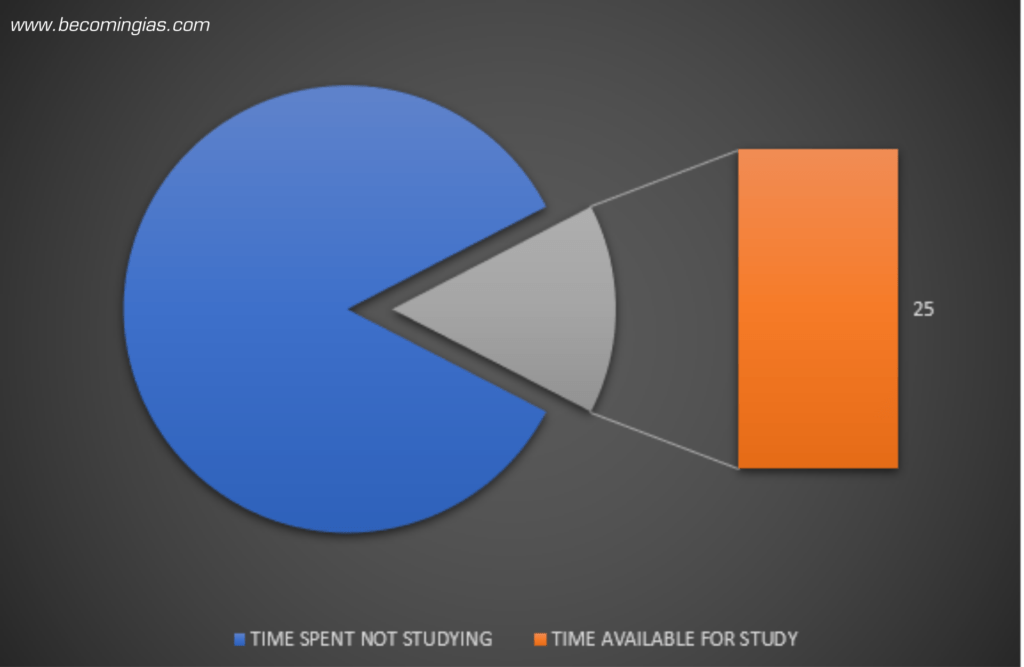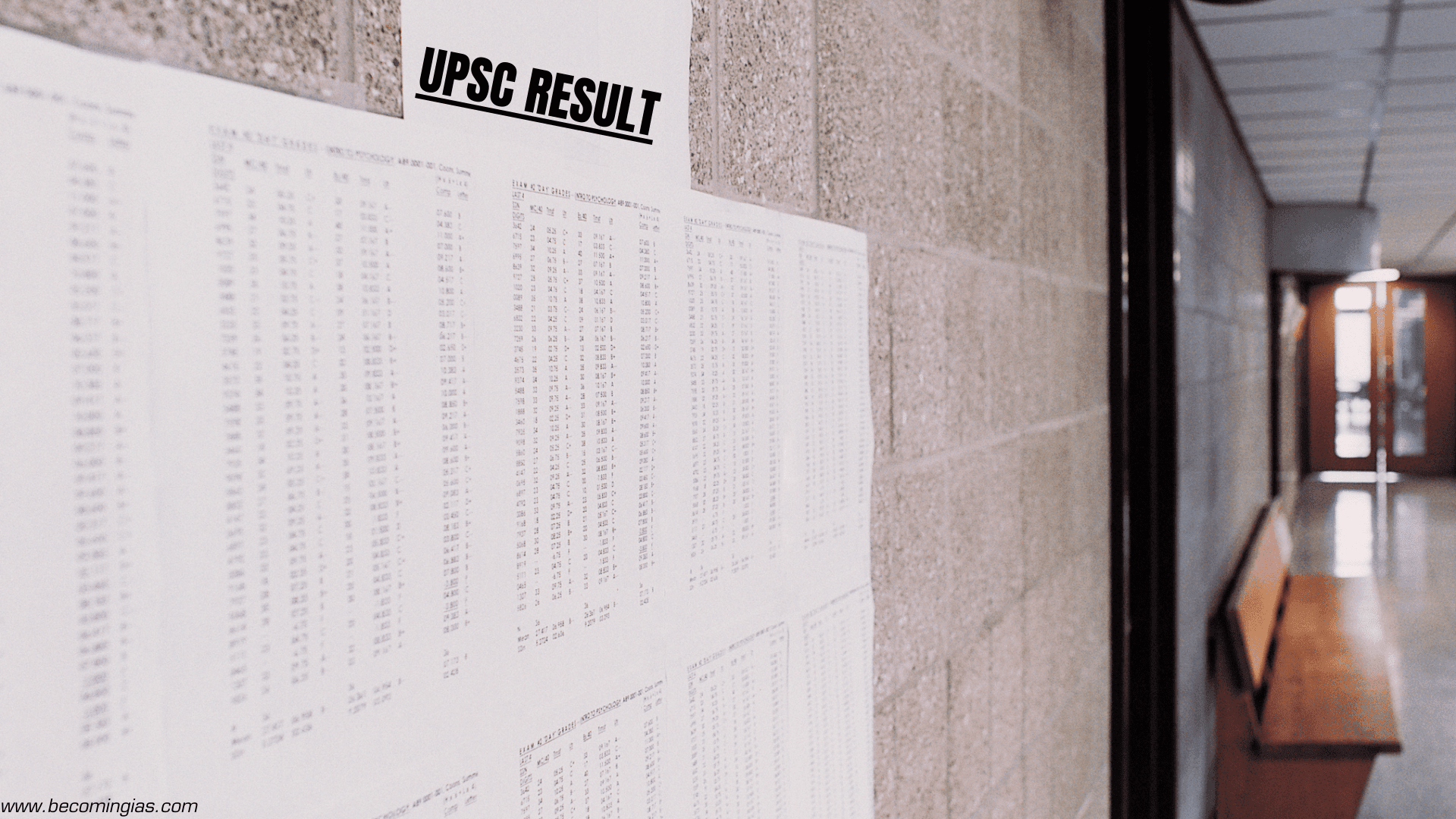The UPSC result has been declared the results for the 2019 year of examination announcing the names of successful candidates.
The UPSC result has recommended a total number of 829 candidates for appointment. Out of the total, 304 are General, 78 selected from EWS category, 251 from OBC category, 129 from SC category, and 67 from ST category. Meanwhile, the result of 11 candidates has been kept withheld. UPSC has said that a total of 180 will be posted as IAS, 24 as IFS, 150 as IPS, 438 as Central Services Group A, 135 as Group B services.
You can find the official result notification here.
The UPSC result has states that it is maintaining a consolidated Reserve List of Candidates – General – 91, EWS – 9, OBC- 71, SC – 08, and ST – 03. The total number of such candidates is 182. The candidature of 66 recommended candidates is provisional.
Based on the result of the MAINS part of Civil Services Examination, 2019 candidates have been recommended for appointment to Indian Administrative Service (IAS), Indian Foreign Service (IFS), Indian Police Service (IPS), and Central Services, Group ‘A’ and Group ‘B’.
The UPSC exam was held in September 2019 and the interviews for Personality Test held between February and August 2020 which is later than usual, the delay caused by the Covid-19 pandemic.
What does the UPSC result mean for you?
There is a lot which goes on when the UPSC results are declared each year. It is a time of jubilation for some and depression for others. The UPSC results has a lot to say to the aspirant but not directly.
The UPSC result is a collage of thousands of stories of hard-work. It includes the stories which did NOT make it to the list as well but worked hard for the IAS exam.
Toppers are over-glorified and their suggestions for preparation often becomes gospel. This is only natural because we tend to focus on obvious success which is obvious, even if it is a lottery winner. The UPSC exam is no lottery but the truth is that there is hardly any significant difference between the top 2000-odd candidates who appear for the interview, having cleared the Mains exam.
However, In order to clear this exam you will need to do a lot more than to listen to successful people. You will need to forge your own path and to figure out how best to navigate the confusing world of UPSC preparation.

You will need good content but also good strategy- which you can learn about here-
Luck and the UPSC result
The role of chance, subjectivity and randomness should not be entirely ignored while interpreting the UPSC result.
Hard word and strategy will get you all the way through to the interview stage but the scores of Mains and interview are combined and added to determine the final ranking.
You write more than 7 papers in Mains exam over which you have a small margin of control, considering that the range of scores in all Mains paper is somewhere between 40-60%. This means that when you work your hardest, you will be able to increase your score up by about 10%.
Now comes the interview in which the score can fluctuate wildly from 30-75%. And this score is not as dependent on academic hard work and effort. It depends on many subjective factors.
And here, the role of statistics come into play. As a law of statistics, some people are inevitably going to score higher than average which gives them a disproportionate advantage in the final ranking.
Moreover the social dynamic of 5 interviewers of the interview board comes into play. Although the UPSC conducts interviews professionally it is not easy to accurately judge a human being in 30 minutes.
An interview where the right connection is established between the candidate and interviewers can result is a vastly different score than one in which the candidate lacks good social skills and the conversation is not so smooth.
Sometimes no matter what you do, you cannot get others to like you Sometimes, for no good reason, others tend to like you. The point is that you have much less control over how you are perceived than you think.
There is no qualitative difference in the abilities of the people who enter the interview stage where you are judged on many subjective criterion.
At the interview stage, there is no superiority or inferiority in capability – just a homogeneous mixture of bright people competing for a limited number of seats.
To UPSC aspirants who did not clear this year
Do not despair. There is a bounty of opportunities in the world today which you can explore.
Unfortunately, the UPSC result only explicitly tells you about the handful of people who made it to the final list. The majority of aspirants, like the majority of the colloquial iceberg, remains hidden and unspoken of.
Their story is not one of failure. It is an incredible achievement to get chosen as one of the top 2000 best and brightest amongst young Indians.
Consider that The current population of India is 1,381,159,795 as of Sunday, August 2, 2020, based on Worldometer elaboration of the latest United Nations data.
All UPSC aspirants are one-in-a-million, even mathematically.

These are all very bright and exceptional people- no better or worse- on an average from each other. Yet, vacancy status demands that only a few be selected each year.
Why the UPSC result doesn’t matter
If you wish to remain despondent over not getting a job, you should re-evaluate the reasons for your sadness because at your age, getting a steady and decent job in the beginning of one’s life, it is the riskiest thing you can do financially.
The opportunity cost of having a job all your life is massive given that these are they years to take risks and try your hand at unique things which you are uniquely suited for.
Consider an average salary of rs 1 lakh/month. You will make about 12 lakh/year but you will fall in a higher Income tax bracket so your take-home salary will be about rs 8-9 Lakh.
You can read about the costs of taking the IAS exam here.
Assuming a typical middle-class life in a metropolitan area which involves- travel, family, expenses, parents, children, emergencies, vacations etc you will easily exhaust most of your annual salary.
Moreover, the average lifespan of people is increasing and you can no longer rely on pension alone. At the present time, you can expect to live to be around 70 years of age, which is set to increase further in coming years. If you retire at 60, you should have enough money to fund the remaining years of your life, preferably in some comfort.
Even if you save some amount each year, by the time you retire you will probably not have enough money to fund your retirement in leisure. Remember that under the New Pension Scheme, the amount of pension is not as much as it used to be. In some cases, it is a mere fraction.
Moreover, there a roll of the dice with what happens after the UPSC result is declared. You need to assess if you are getting the right cadre, the right service, the right atmosphere.
Be assured that once the dust settles, you will find yourself playing a completely different game within the Civil Services. The chess-board is reset and you must start all over again- how well you do in your career will have little or nothing to do with your performance in the IAS exam.
The topper of this years will soon be forgotten and replaced by he ones which come next year.
Conclusion
Let this liberate you and give you some peace of mind. Know that you did fantastically well by coming this far in the UPSC result. It is a HUGE achievement to be counted in the select few of the country as the best and brightest.
Is applying for the IAS exam worth it for you? The only person who should ask this question is you.
The only person who can answer this is also you.
Knowing the costs involved is the first step in that direction.
The really good news is that these costs are if you choose to do this the conventional way/ old-fashioned way which 99.9% of the people follow.
Nowhere does the UPSC compel you to follow this path.
You can choose your own path. You will make mistakes but will ultimately get to your goal.
Or you can learn from my mistakes and use my methods.
Where there are much better ways. Less expensive. More effective. Faster.
you can do this without incurring such heavy expenses.
You can do this WITHOUT coaching institutes AND while continuing your job.
It is not easy, but it is entirely doable.
And you can do it.
The only question is- Are you going to?
If you decide to take the plunge, start with the UPSC syllabus challenge.
I hope this was helpful. Let me know what you think in the comments below.
